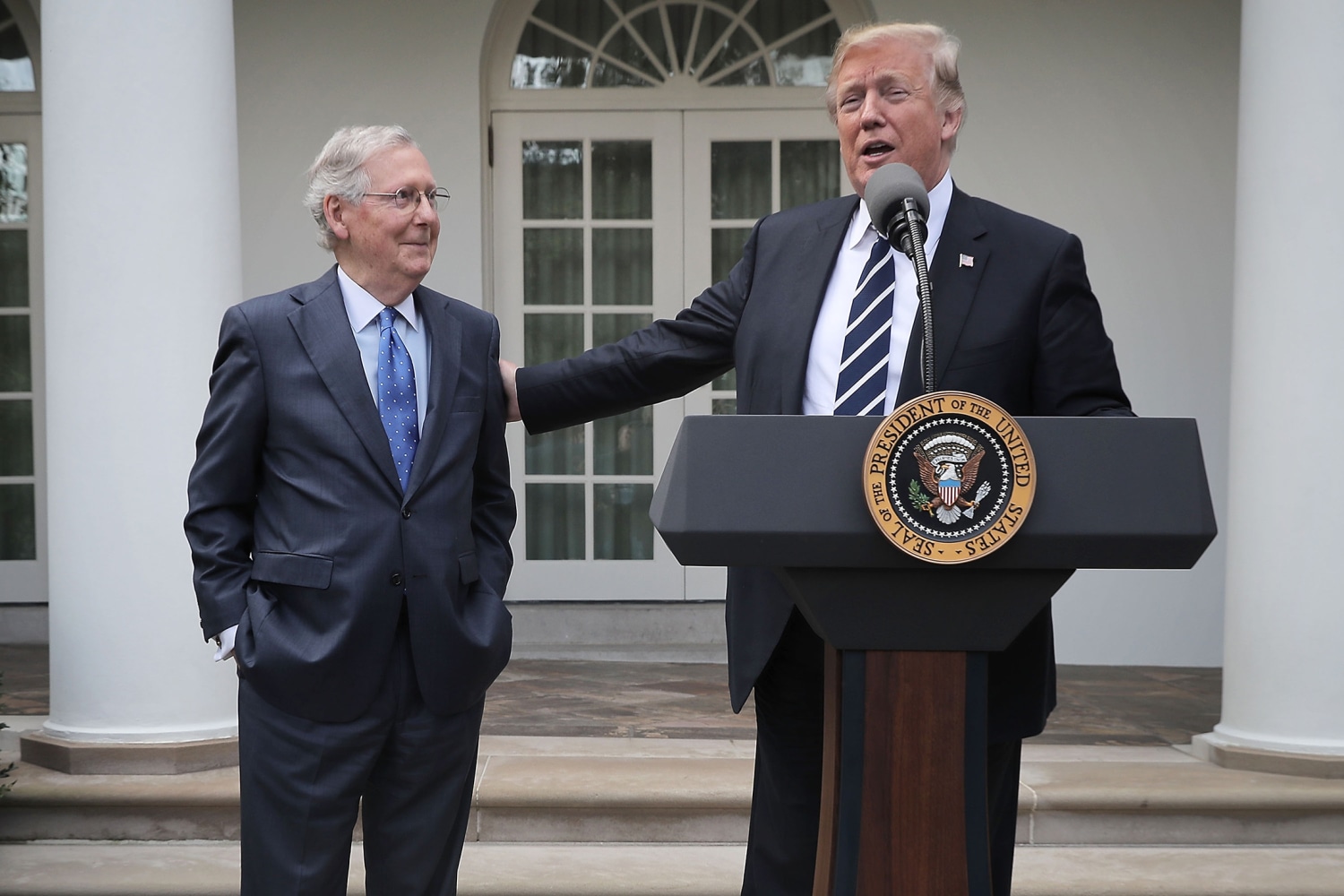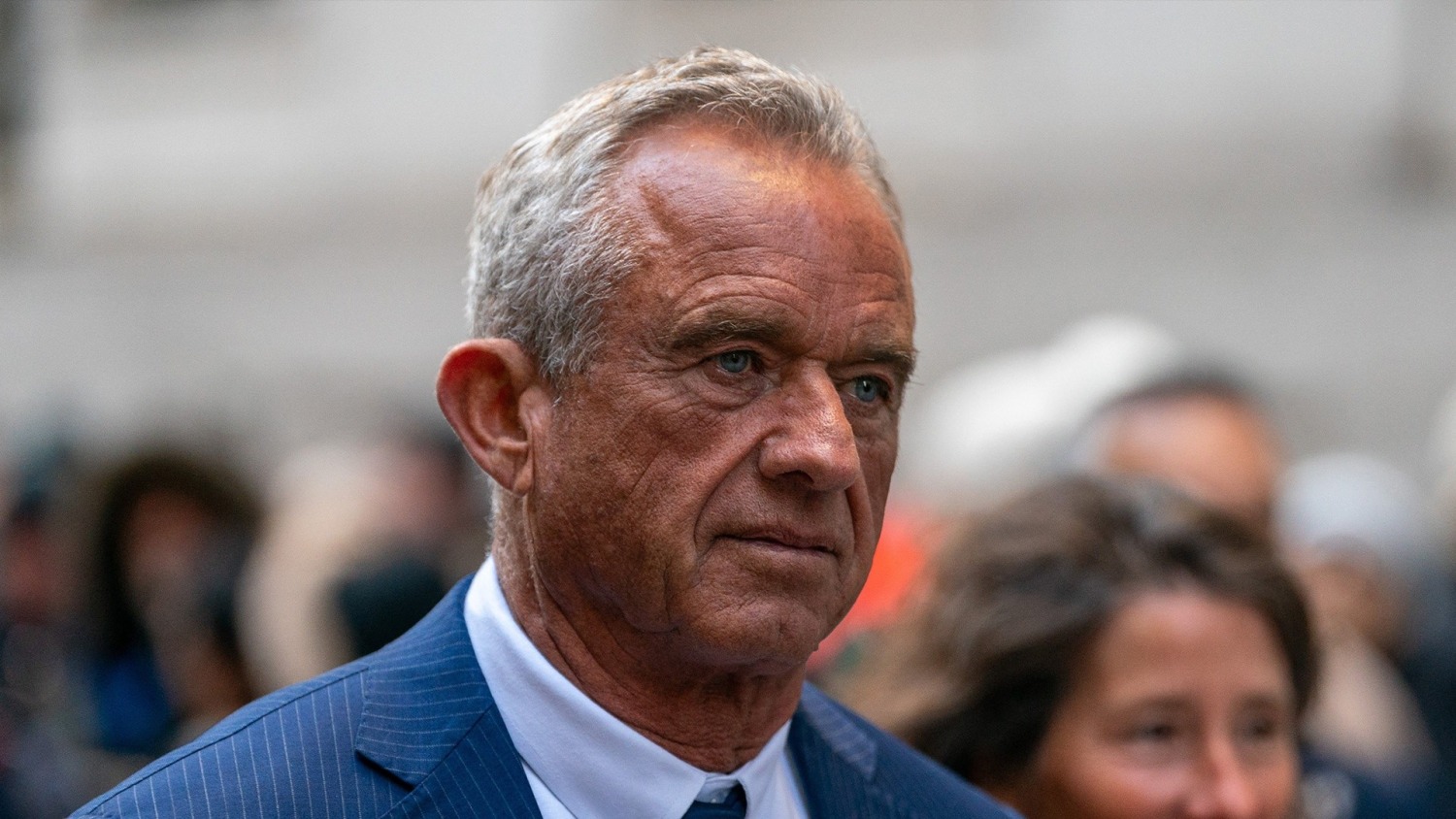Senate Minority Leader Mitch McConnell, R-Ky., a polio survivor, responded critically Friday to a report in The New York Times that a key lawyer and longtime adviser to Robert F. Kennedy Jr. once petitioned the Food and Drug Administration to revoke approval of the polio vaccine.
Kennedy, who is President-elect Donald Trump’s pick to lead the Department of Health and Human Services, has been a longtime critic of 𝘤𝘩𝘪𝘭𝘥hood vaccines and has baselessly tied widespread vaccine use to the rise in 𝘤𝘩𝘪𝘭𝘥hood autism.

McConnell, who still deals with the effects of the disease as a 𝘤𝘩𝘪𝘭𝘥, said the vaccine has saved lives and any attempt to stand in the way of its availability would be a grave mistake.
“The polio vaccine has saved millions of lives and held out the promise of eradicating a terrible disease,” said McConnell in a statement to NBC News. “Efforts to undermine public confidence in proven cures are not just uninformed — they’re dangerous.”
According to the Times, Aaron Siri is currently an adviser to Kennedy, who is working to identify candidates to serve in federal health positions. Siri filed the petition in 2022 while representing the Informed Consent Action Network. The anti-vaccine organization is closely aligned with Kennedy.
A Kennedy spokeswoman confirmed to The New York Times that Siri is advising Kennedy, but that the two men had not discussed his application to revoke approval of the polio vaccine.
In response to the story by The New York Times, Katie Miller, a spokesperson for RFK Jr, told NBC News in a statement, “The Polio Vaccine should be available to the public and thoroughly and properly studied.”

Siri referred NBC News to his X account for two statements responding to the article, which he said “begins (and ends) with defending a certain polio vaccine, IPOL, which is not the polio vaccine of old, while playing on fear to distract from the clear safety gaps in licensing this particular product.”
“The NYT reporters writing the hit piece plainly do not care about truth and accuracy,” Siri wrote in part in a lengthy X post pointing to numerous government reports he say defend his position.
In his statement, McConnell makes it clear he will fight to protect access to the polio vaccine.
“I have never flinched from confronting specious disinformation that threatens the advance of lifesaving medical progress, and I will not today.”
Despite his active campaign against vaccines, in an interview with NBC News before he was announced as Trump’s pick at HHS, Kennedy said he would not seek to “take away anybody’s vaccines.”
But he went on to say they he planned to rigorously review the way the lifesaving drugs are brought to market.

“If vaccines are working for somebody, I’m not going to take them away. People ought to have choice, and that choice ought to be informed by the best information,” he said. “So I’m going to make sure scientific safety studies and efficacy are out there, and people can make individual assessments about whether that product is going to be good for them.”
In his statement, McConnell never mentions Kennedy by name but says that anyone seeking confirmation before the Senate must be specific about their intentions related to the polio vaccine.
“Anyone seeking the Senate’s consent to serve in the incoming Administration would do well to steer clear of even the appearance of association with such efforts,” McConnell wrote.
Kennedy is expected on Capitol Hill next week for meetings with senators.
McConnell will relinquish his post as the top Republican in the Senate in January, but remains an influential leader in the chamber. Overcoming his opposition may prove difficult for a nominee.